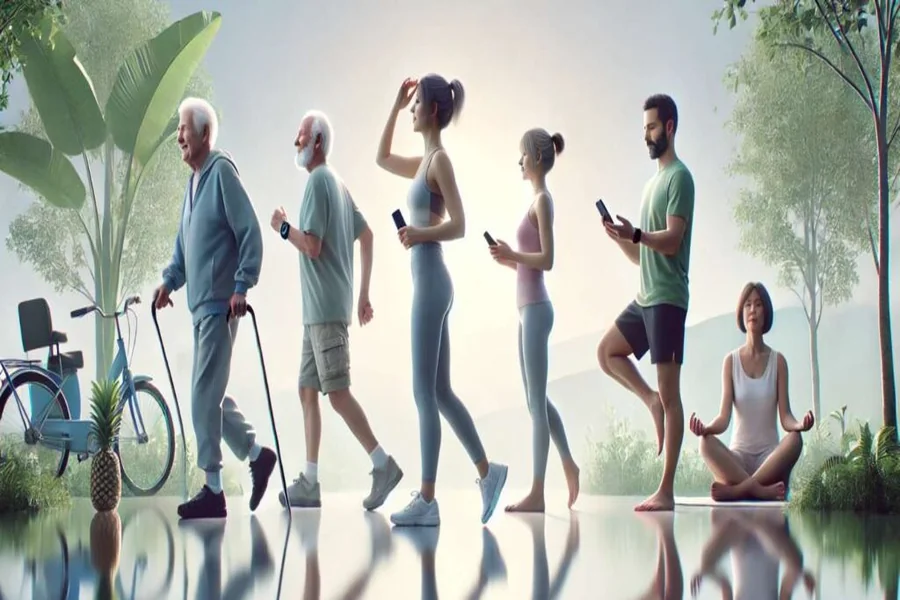From Nightlife to Balance
For decades, indulgence was a defining trait of youth. Social media chronicled the joys of nightlife, binge drinking, and fast food binges as markers of fun and freedom. Millennials, now in their late twenties and thirties, are increasingly moving away from these vices. Yet for those who still enjoy occasional nicotine, disposable vape deals make it easy to enjoy vaping without the commitment of traditional cigarettes. Affordable and convenient, these vapes provide a modern alternative for those seeking a controlled indulgence while transitioning toward healthier habits. Millennials are seeking balance, longevity, and self-care—a journey fueled not just by social pressure but by a genuine desire to feel better, live longer, and take control of their futures.
Awareness and Information as Drivers
One of the key drivers of this wellness revolution is awareness. Millennials have grown up in an age of information, with access to research, health apps, and real-time data about nutrition, exercise, and mental health. Unlike previous generations, who often relied on anecdotal advice or conventional wisdom, millennials can track their sleep patterns, monitor caloric intake, and measure stress levels with a few taps on a smartphone. This access to personalized information has made it easier to make conscious choices about diet, exercise, and lifestyle.
Rethinking What’s on the Plate
Dietary habits offer a clear example of this shift. While fast food and sugary drinks were once staples of millennial youth, plant-based diets, intermittent fasting, and organic foods are gaining popularity. Restaurants and supermarkets are responding, offering more vegan, gluten-free, and ethically sourced options than ever before. For many millennials, the appeal goes beyond health—it’s also about ethics, sustainability, and supporting brands that align with their values. Choosing a locally sourced meal over a quick fast-food option becomes both a health decision and a statement about personal responsibility.
Fitness for Body and Mind
Fitness, too, has undergone a transformation. The rise of boutique studios, online workout subscriptions, and holistic fitness programs has replaced the conventional gym routine for many millennials. Activities like yoga, Pilates, and meditation not only improve physical health but also target mental wellness. This generation understands that stress management, sleep quality, and mental clarity are just as crucial as cardiovascular endurance or muscle tone. Wellness is thus as much about the mind as it is about the body.
Prioritizing Mental Health
Mental health, long stigmatized, has become a central focus of millennial wellness. Therapy, mindfulness apps, and self-care routines are now normalized and celebrated. Social media campaigns and public figures openly discussing mental health struggles have helped reduce stigma, making it easier for young adults to prioritize emotional well-being. Millennials recognize that physical health cannot exist in isolation from mental health; the two are inextricably linked, and adopting practices that support both is seen as essential for a balanced life.
Technology as a Wellness Ally
Technology plays a dual role in this transition. On one hand, it has historically contributed to unhealthy habits, from screen addiction to sedentary lifestyles. On the other hand, it now empowers millennials to monitor and improve their health. Fitness trackers, meditation apps, and meal-planning platforms offer data-driven insights, turning wellness into a quantifiable and achievable goal
Shaping Industries and Consumer Trends
This generational shift is also reshaping industries. Wellness tourism, organic food markets, and mental health apps are experiencing unprecedented growth, fueled by millennial demand. Businesses that fail to recognize this pivot toward health-conscious and flexible choices risk being left behind. Conversely, brands that align with millennial values—sustainability, transparency, and holistic wellness—are thriving.
The New Definition of Enjoyment
Ultimately, the move from vice to wellness reflects a broader evolution in values. Millennials are redefining what it means to enjoy life—not through excess, but through vitality, balance, and purpose. By choosing exercise over overindulgence, mindfulness over distraction, nutritious meals over convenience, and mindful vaping over traditional cigarettes, they are building habits that support long-term health without sacrificing enjoyment.
Intentional Living for a Healthier Future
The journey from vice to wellness is not about perfection; it is about intentionality. Millennials are learning to savor life while prioritizing their well-being, creating a cultural blueprint for healthier, more sustainable living. As this trend continues, it will likely influence younger generations, shaping a future in which wellness is not a luxury but a standard, and where living well means living intentionally. In saying goodbye to vices and hello to wellness, millennials are not just changing their own lives—they are redefining what it means to thrive in the modern world.







